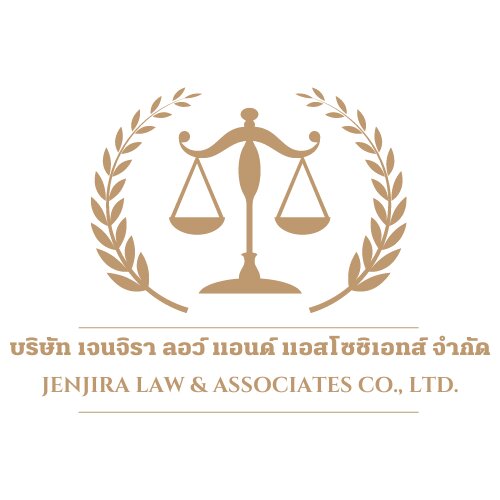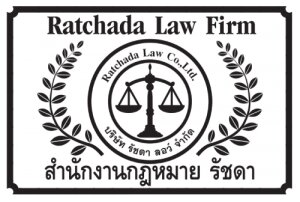Best Renewable & Alternative Energy Lawyers in Bang Kapi
Share your needs with us, get contacted by law firms.
Free. Takes 2 min.
List of the best lawyers in Bang Kapi, Thailand
About Renewable & Alternative Energy Law in Bang Kapi, Thailand
Renewable and alternative energy law in Bang Kapi, a district in Bangkok, Thailand, is shaped by national policies and regional regulations that encourage the sustainable use of energy resources. As energy demand increases and the government pushes for sustainable growth, Bang Kapi is seeing a growing interest in solar, wind, biomass, and other alternative energy sources. The legal landscape involves navigating permits, incentives, environmental assessments, land use, and electricity sales, making it important for both individuals and businesses to understand their legal obligations and opportunities in the area.
Why You May Need a Lawyer
There are several situations where legal advice is crucial in the renewable and alternative energy sector in Bang Kapi. Common scenarios include:
- Securing permits to install solar panels or wind turbines on commercial or residential properties
- Navigating land use and zoning regulations related to renewable energy projects
- Structuring contracts for the purchase, installation, or sale of energy systems
- Understanding eligibility for government incentives, subsidies, or feed-in tariffs
- Dealing with disputes related to construction, performance, or energy sales agreements
- Complying with environmental regulations and conducting required impact assessments
- Foreign investment considerations and joint ventures in the renewable energy field
Legal professionals can help ensure compliance, prevent conflicts, maximize available benefits, and protect your financial and contractual interests.
Local Laws Overview
The core legislative framework for renewable and alternative energy in Bang Kapi comes from national law and policies implemented by authorities such as the Ministry of Energy, the Energy Regulatory Commission, and the Metropolitan Electricity Authority. Some key aspects include:
- Power Purchase Agreements (PPAs) - Legal contracts for selling electricity to public utilities under set frameworks and rates
- Licensing and Permits - Required for construction, operation, and grid connection of energy systems
- Net Metering and Feed-In Tariffs - Policies that outline the compensation for excess electricity supplied back to the grid
- Environmental Impact Assessments (EIA) - Mandatory for certain renewable projects, especially large or commercial installations
- Land Zoning and Use - Regulations on the types of land that can host renewable energy equipment
- Tax Incentives and Subsidies - Programs that provide financial support for renewable energy investments
- Foreign Investment Restrictions - Limits and requirements for foreign ownership or operation in energy projects
Local administrative offices in Bang Kapi may also have additional requirements or processes for projects within the district.
Frequently Asked Questions
What types of renewable energy are common in Bang Kapi?
Solar energy is the most prevalent in residential and commercial projects. There is also interest in small-scale wind and biomass but less due to urban densities.
Do I need official permission to install solar panels at my home?
Yes, permission from local authorities and the Metropolitan Electricity Authority is typically required, especially if connecting to the grid.
Are there any government incentives for installing renewable energy in Bang Kapi?
Yes, Thailand offers tax incentives, investment privileges, and feed-in tariff schemes for eligible renewable energy projects, although specifics may vary each year.
How can I sell excess electricity from my solar system?
Most commonly, you can apply for net metering or a feed-in tariff arrangement through your electricity provider, subject to their terms and grid capacities.
Do I need an environmental impact assessment for a small rooftop solar installation?
Typically, small rooftop solar projects are exempt from formal environmental impact assessments. Larger projects, especially commercial ones, may require one.
Can foreigners invest in renewable energy projects in Bang Kapi?
Yes, but restrictions apply. Limits on foreign ownership and special approval steps may be required, depending on project size and sector.
What legal issues might arise with land use for renewable energy?
Zoning laws and land title issues can affect where and how renewable energy systems can be installed. Legal review is important before starting any project.
Who regulates renewable energy in Bang Kapi?
Regulation comes primarily from national bodies, such as the Ministry of Energy, Energy Regulatory Commission, Board of Investment, and local administration offices.
What should I include in a contract with an installer or energy supplier?
Key points are project scope, timeline, performance guarantees, payment terms, warranties, dispute resolution, and compliance with local laws.
How can a lawyer help if there is a dispute over a renewable energy project?
A lawyer can assist with negotiation, mediation, or court action to resolve contractual breaches, payment issues, or regulatory violations.
Additional Resources
Several organizations and governmental bodies provide guidance and support for renewable and alternative energy legal topics in Bang Kapi and Thailand:
- Ministry of Energy (Thailand) - sets national energy policy and programs
- Energy Regulatory Commission (ERC) - oversees licensing, tariffs, and regulation
- Board of Investment (BOI) - offers investment incentives and information
- Metropolitan Electricity Authority (MEA) - manages urban grid connections
- Provincial Energy Offices - local support for permits and information
- Thailand Greenhouse Gas Management Organization - guidance on carbon credits and emissions
- Thai Renewable Energy Association - industry knowledge and advocacy
Next Steps
If you are considering a renewable or alternative energy project in Bang Kapi and need legal advice, here is what you can do:
- Identify your project type and scope, including technology, location, and objectives.
- Consult with local authorities or relevant agencies about specific requirements in Bang Kapi.
- Seek a qualified lawyer with experience in renewable energy law in Thailand, preferably with knowledge of local procedures and regulations.
- Prepare necessary documentation, such as land titles, business plans, and technical specifications.
- Work with your legal advisor on submitting applications, negotiating agreements, and ensuring compliance at every stage.
- If any conflicts, violations, or uncertainties arise, involve your lawyer early to resolve issues before they escalate.
By following these steps, you can better navigate the legal complexities of renewable and alternative energy projects in Bang Kapi, Thailand, and maximize your project's chances of success.
Lawzana helps you find the best lawyers and law firms in Bang Kapi through a curated and pre-screened list of qualified legal professionals. Our platform offers rankings and detailed profiles of attorneys and law firms, allowing you to compare based on practice areas, including Renewable & Alternative Energy, experience, and client feedback.
Each profile includes a description of the firm's areas of practice, client reviews, team members and partners, year of establishment, spoken languages, office locations, contact information, social media presence, and any published articles or resources. Most firms on our platform speak English and are experienced in both local and international legal matters.
Get a quote from top-rated law firms in Bang Kapi, Thailand — quickly, securely, and without unnecessary hassle.
Disclaimer:
The information provided on this page is for general informational purposes only and does not constitute legal advice. While we strive to ensure the accuracy and relevance of the content, legal information may change over time, and interpretations of the law can vary. You should always consult with a qualified legal professional for advice specific to your situation.
We disclaim all liability for actions taken or not taken based on the content of this page. If you believe any information is incorrect or outdated, please contact us, and we will review and update it where appropriate.










